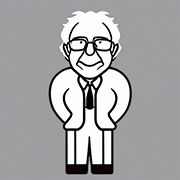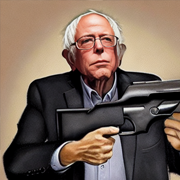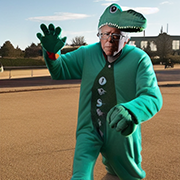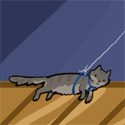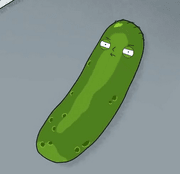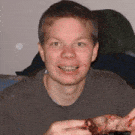|
What is the most powerful flying bug? This poll is closed. |
|||
|---|---|---|---|
| 🦋 |
|
15 | 3.71% |
| 🦇 |
|
115 | 28.47% |
| 🪰 |
|
12 | 2.97% |
| 🐦 |
|
67 | 16.58% |
| dragonfly |
|
94 | 23.27% |
| 🦟 |
|
14 | 3.47% |
| 🐝 |
|
87 | 21.53% |
| Total: | 404 votes | ||
|
they’re doing the “Russia bombed their own pipeline because they’re evil orcs” script again beat for beat and its successfully driving me insane. The contextless and possibly fake phone calls, the occasional gloating of how this helps Ukraine strategically, the pointed lack of any plausible motivation provided, the screams of moral indignation at Russia for doing such evil, and of course, that questioning any of this means you love and want to kiss Putin.
|
|
|
|

|
| # ? Jun 12, 2024 19:33 |
|
Marenghi posted:I'm going to hazard a guess based on the reports of grifting among the military and government of the aid they are receiving for this war. Right now it's a very profitable time to be a Ukrainian official but that is only true so far as this war is on-going. The post war future is uncertain so this may be the best time to fill your bank account for retirement. Continued aid is dependent on continued results, even if they are failures, any action is better than no action for keeping the money flowing. You can always spin the failures as proof you need more aid. I think you nailed it. Which is very funny because there was a book just added to the reading list here, Command: The Politics of Military Operations from Korea to Ukraine which posits that Ukraine's inherent democratic nature and accountability will lead them to persevere. I'm simplifying while I dig up the quotes.
|
|
|
|
It would be a fun post-war project to collect all the extremely fake phone calls & compose a recap of the war exclusively off them
|
|
|
|
Yeah, so I think one brigade had a total of 28 (I guess 27 with that training accident) of Leo2s, if they lost 8-10, they would be much of the offensive firepower at that brigade. Also, those brigades were using a mix of equipment and a lot of it was Soviet which makes things a little murkier.
|
|
|
|
*civil war narrator voice* Day 900 of the war. The orcs, having endured countless beatings by the virile Ukrainian supersoldiers and their massive penises, are demoralized. They have run out of toilets to steal, and their ugly 90 year old girlfriends are demanding more iphones. As the Ukrainians successfully defend Lviv from yet another futile failed offense, prisoner-conscript Glugg Ok'tuk wishes he could return home to his sheepskin tent in the untamed Russian plains.
|
|
|
|
Frosted Flake posted:lol is it even worth breaking out my operational analysis charts to show losing 10% of AFV strength on the first day is... not ideal? Attackers always take more losses than defenders. Losing 10% of the AFV strength is proof Ukraine's offensive is successful otherwise they wouldn't be losing any AFVs.
|
|
|
bedpan posted:Attackers always take more losses than defenders. Losing 10% of the AFV strength is proof Ukraine's offensive is successful otherwise they wouldn't be losing any AFVs. costs money to make money
|
|
|
|
|
They dont even use the toilets because Russia has no running water or sewage system, they place them in the middle of the living room (a cave) and fondly admire the Ukrainian craftsmanship
|
|
|
|
Frosted Flake posted:Yeah, but the counterarguments in the book that argues that I am part of an "operating system" are gibberish to me and mention things like "digital Maoism": they are trying to build the framework and theory of mind for an AI/computer controlled force that would allow the person at the top with the access codes entire control without ever having to worry
|
|
|
|
Slavvy posted:This sort of loops back around into politics and philosophy doesn't it? Like if you're NATO and you accept the reality of the above, and analysts are telling you that it's not possible to out-produce, out-shoot and out-man the USSR, then it follows that you'll inevitably lose any non-nuclear conflict. This is politically unacceptable so the system will promote people with an answer to this problem, namely that we will always find some way of flanking or out-maneuvering the enemy by fighting 'smarter', and our smart weapons will help us do this, because we're so smart. If you then ask why NATO commanders and troops would be so much smarter than their Soviet counterparts you end up at either ethnic or political superiority, we are intrinsically better because of X aka Nazi thinking. If you are NATO you are absolutely ok with letting Ukraine be completely wiped out to force a geopolitical rival to spend as much as possible on the war.
|
|
|
|
https://twitter.com/200_zoka/status/1667188558052851713
|
|
|
|
Zelensky should try to free Navalny from prison and declare him the legal president of Russia
|
|
|
|
Nonsense posted:Zelensky should try to free Navalny from prison and declare him the legal president of Russia Navalny would have to fight juan guaido for the office
|
|
|
|
The smoke from those tanks is actually just the crews enjoying a well deserved cigarette break after a successful attack into the russian defenses.
|
|
|
|
whenever something bad happens to a ukranian armor column, they pull into a tight huddle to discuss next steps. ive seen it happen a bunch of times, all video feeds from rus spotting drones unfortunately  Frosted Flake posted:On the last Maple Resolve, a battalion of RCR got disorganized and paused at a crossroads to regroup. A fire mission was called in for 14 LAVs parked under a group of trees. Frosted Flake posted:It’s true, remember who trained them blame canada
|
|
|
|
|
Yeah, one of the Leopard 2a6s was really lit up as well, the crew may have not made it.
|
|
|
|
russian tanks getting blown up in a field? zelenskyy will be with his army at the gates of moscow in three days
|
|
|
|
Ardennes posted:Yeah, one of the Leopard 2a6s was really lit up as well, the crew may have not made it. clearly those are all russian tanks because they are getting destroyed
|
|
|
|
the russian tanks are driving south because they are scared and going home.
|
|
|
|
Frosted Flake posted:Yeah, but the counterarguments in the book that argues that I am part of an "operating system" are gibberish to me and mention things like "digital Maoism": this just makes me want eddie lampert for sec def honestly
|
|
|
|
Ukrainians are blowing up their own tanks to show that they can destroy tanks
|
|
|
|
Frosted Flake posted:lol is it even worth breaking out my operational analysis charts to show losing 10% of AFV strength on the first day is... not ideal?
|
|
|
|
bedpan posted:Ukrainians are blowing up their own dams to show that they can destroy dams
|
|
|
|
bedpan posted:Ukrainians are blowing up their own tanks to show that they can destroy tanks Ukraine sending a message to the mobiks that they don’t even need the tanks they spent months begging for to win.
|
|
|
|
Eat This Glob posted:eat more beaver? you sound like my HARPY OF A WIFE! (canned laughter) shut up dj khaled
|
|
|
|
From Hybrid Conflict to All-Out War: Russia Fights Ukraine posted:A dog senses when somebody is afraid of it, and bites. I don't think this is incorrect or flawed essentially, except where the narrative of the political dimension intrudes. However, this having set the stage, the command lessons that follow are a bit absurd imo. Maybe truth is stranger than fiction, but some of this is clearly here for flavour rather than useful analysis. GIRKIN/STRELKOV posted:His politics had already moved to a romantic extreme, embracing ultranationalism and advocating, at a time of chaotic transition in Moscow, a return to monarchism. One who knew him then described him as ‘living in the beginning of the 20th century’. This belief in the restoration of the Tsarist Empire found an outlet in military re-enactment societies, which allowed him to dress up in old uniforms and carry vintage weapons to relive the battles of past wars. His favourite role appears to have been as an officer of the anti-Bolshevik White Russians during the civil war that began in 1918 and continued until the early 1920s. White Russian General Mikhail Drozdovsky, who was killed in battle in 1919, was his hero. Girkin’s distinctive look, with closely cropped hair and thin moustache, was said to be influenced by this period, along with his military tactics. As a commander, he could act decisively, and was sufficiently brave, confident and ruthless to get others to follow him. As a politician, he was trapped in his romantic world view, which left him pursuing unrealistic goals. ANNEXING CRIMEA posted:The gathering anti-Russian movement in Kyiv prompted opposing pro- Russian sentiment in Crimea. This created secessionist possibilities that were straightforward for Russia to exploit, not least because it had a naval base at Sevastopol, attached to Crimea. During the first weeks of 2014, interested parties from Moscow visited Crimea. On 30 January, Malofeev accompanied a religious delegation to Simferopol, the Crimean capital. Girkin provided security. He took the opportunity to do some reconnaissance and meet with Sergey Aksyonov, head of the small Russia Unity Party and previously a businessman, with alleged links to organized crime. HYBRID WAR TO TOTAL WAR posted:Despite the talk of 'hybrid warfare', which implied a single mastermind pulling together mutually reinforcing strands of activity, the confused lines of command undermined operational effectiveness and blurred the political message. In the first stage of its war with Ukraine, Russia secured Crimea, but then it hesitated about what else it wanted to do. The pretence was maintained that a rebellion was under way as an authentic local reaction to a coup in Kyiv, denying the role of Russian money and guidance, as well as the roles played by its Spetsnaz and eventually regular forces. The militants in view were a mixture of romantics, adventurers, crooks and mercenaries. Inevitably, they often worked at cross purposes, and Moscow struggled to control their activities. They lacked the capacity to create the insurrectionary conditions that might have persuaded Putin to annex even more territory. Yet they left Russia committed to their defence, with a stake in the viability and security of a chunk of territory in a neighbouring country. Where, again, I think he's basically correct but then there's stuff like Putin is Increasingly Isolated, Trump is a threat to the Rules Based International Order, Withdrawing From Afghanistan Made America Weak etc.
|
|
|
|
Al-Saqr posted:dead leopards and bradleys spotted tell us how this is bad for ruzzia
|
|
|
|
Dixon Chisholm posted:tell us how this is bad for ruzzia that looks like a real mess of a traffic jam, it'll take russia hours to clear that if they want to use that lovely dirt path
|
|
|
|
To be clear, I think what is going on is pretty hosed up, and people are certainly dying at the moment. It is history in the making etc but quite ugly.
|
|
|
|
Dixon Chisholm posted:shut up dj khaled we the best
|
|
|
|
What's frustrating is that there's a tonne I agree with, and aligns more or less with observations ITT, interspersed with meditations on the nature of the Russian mind, autocracy, authoritarianism, Brave Little        To give you an idea of why I'm wary of the author and his lessons on the nature of military command, consider:  Why yes, my takeaway from the "ethically distasteful" conduct of the French in Algeria and Indochina is that they were serving "some higher notion of the interests of the state" rather than the "weak government of the day". Frosted Flake has issued a correction as of 17:26 on Jun 9, 2023 |
|
|
|
Delta-Wye posted:whenever something bad happens to a ukranian armor column, they pull into a tight huddle to discuss next steps. ive seen it happen a bunch of times, all video feeds from rus spotting drones unfortunately I was just thinking that. Yeah. Clearly nobody taught the Russian arty staff about cost effectiveness.
|
|
|
|
why is everyone jerking off about leopards. are they the new wunderwaffen de hour that everyone is pinning nafo hopes on??? idgi
|
|
|
|
the infinite arsenals of NATO can easily replace anything damaged or loss; Russia can't make new ammunition so every shot just takes them closer to defeat
|
|
|
|
Putin is becoming increasingly isolated. Nevertheless the fight continues against the Russian Special Operation.
|
|
|
|
Xaris posted:why is everyone jerking off about leopards. are they the new wunderwaffen de hour that everyone is pinning nafo hopes on??? idgi yea they were, lots of the worst people you can imagine were very excited to see them in action.
|
|
|
|
CongoJack posted:yea they were, lots of the worst people you can imagine were very excited to see them in action. Well, they got their wish I guess. Christ. Did I already post about when I met with an engineer from Colt Canada and he said something along the lines of regretting that he hadn't seen the C8 in action?
|
|
|
bedpan posted:the infinite arsenals of NATO can easily replace anything damaged or loss; Russia can't make new ammunition so every shot just takes them closer to defeat *sighing, adding +10,000 shells to the 'russia's losses' list*
|
|
|
|
|
Xaris posted:why is everyone jerking off about leopards. are they the new wunderwaffen de hour that everyone is pinning nafo hopes on??? idgi The Leopard 2a6 in particular is one of the most advanced tanks in NATO, so, seeing one lit up and other ones damaged/abandoned is fairly notable. Just imagine what a nightmare it would be for an Abrams tank to be out there in terms of traffic control and grouping. Ardennes has issued a correction as of 17:49 on Jun 9, 2023 |
|
|
|

|
| # ? Jun 12, 2024 19:33 |
Ardennes posted:The Leopard 2a6 in particular is one of the most advanced tanks in NATO, so seeing one lit up and other ones damaged/abandoned, is fairly notable. war went better when it was bullying small countries, who knew
|
|
|
|



